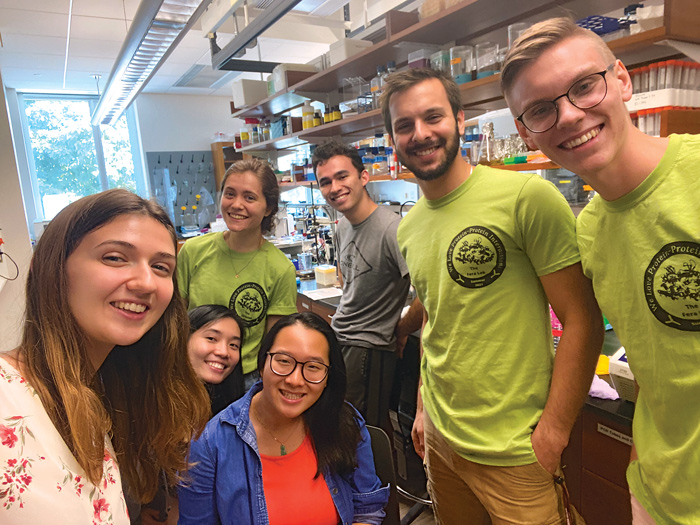On Our Radar
Pterodactyl Sighting
One was the feature on the Pterodactyl Hunt. Good to hear this zany tradition is alive and well. The main reason I decided to go to Swarthmore in 1987 was because I saw a poster advertising the Pterodactyl Hunt on a campus visit. I figured any college that hosted such a bizarre activity must be an interesting place to be.
The Hunt’s tradition may have spread. I introduced it to a summer camp up in Maine one year. Who knows how many Pterodactyls are flying around the world now?
Besides having yearly fun with the Hunt, once I arrived at Swarthmore, I was extremely thankful for the Student Activities Fund. Not many schools had this fee wrapped into tuition. By making the Student Activities Fund part of tuition, it opened up all campus concerts, movies, and other events to everyone for free. I’m extremely pleased to see the Textbook Affordability Program fund following the same tradition for textbooks and college supplies. Getting into Swarthmore is one thing. Being able to live, interact, and thrive on campus without social and financial barriers is absolutely essential. Bravo for instating TAP!
— HEATHER RIGNEY SHUMAKER ’91, Traverse City, Mich.
textured treat
— Dillon McGrew ’07, University Park, Md.

Summer research was in full swing for students working in the lab with Daniela Fera, assistant professor of biochemistry.
COVID AND CAPITAL
Like most natural disasters, the human suffering is caused by the human economy. It is not random that the first two COVID-19 hot spots were a nursing home in Washington and a meat-packing plant in South Dakota. These are two industries with the lowest-paid and least-benefited workers. If the choice is working while symptomatic versus missing a paycheck, going to work is required. Losing pay means losing food, missing rent, and possibly becoming homeless. The same dynamics made COVID hit communities of color much harder than white communities.
This is the ugly face of capitalism.
In a rational economy, a global health emergency means all hands on deck for health workers. Yet, due to the exigencies of profit, hospitals, having too few beds, were unprepared for the crisis and clinics actually laid off workers.
When economists shirk their responsibility, they pave the way for future suffering in the next natural disaster.
— ROBBIE LIBEN ’83, Missoula, Mont.
water, water everywhere
— judith Leeds inskeep ’60, Gwynedd, Pa.